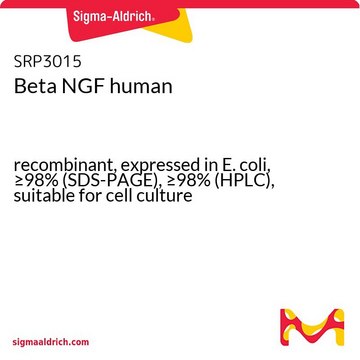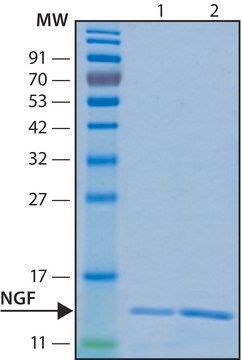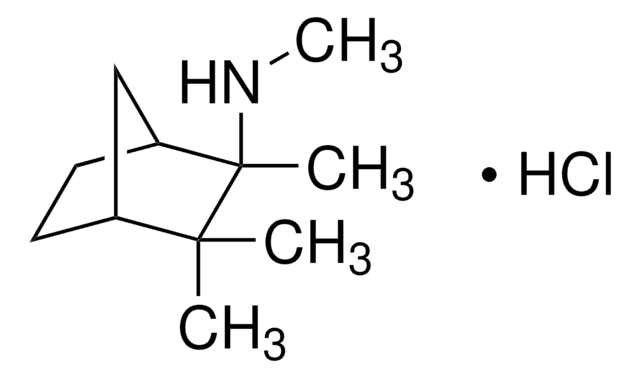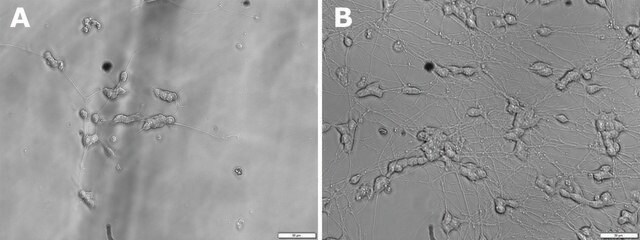N1408
Nerve Growth Factor β Human
>97% (SDS-PAGE), recombinant, expressed in NSO cells, lyophilized powder, suitable for cell culture
Synonym(s):
HSAN5, NGFB, hNGFβ
About This Item
Recommended Products
product name
NGF-β human, from human, recombinant, expressed in NSO cells, lyophilized powder, suitable for cell culture
biological source
human
Quality Level
recombinant
expressed in NSO cells
Assay
>97% (SDS-PAGE)
form
lyophilized powder
potency
0.15-3.0 ng/mL ED50/EC50
quality
endotoxin tested
packaging
pkg of 5X0.1 mg
pkg of 0.1 mg
technique(s)
cell culture | mammalian: suitable
impurities
<1 EU/μg
solubility
water: soluble 0.1 g/L at 20 °C
UniProt accession no.
storage temp.
−20°C
Gene Information
human ... NGF(4803)
Looking for similar products? Visit Product Comparison Guide
General description
Application
- in protein pin arrays
- to induce U87-MG (glioblastoma cell line) cell proliferation
- in drug release kinetics
Biochem/physiol Actions
Physical form
Analysis Note
Storage Class Code
11 - Combustible Solids
WGK
WGK 3
Flash Point(F)
Not applicable
Flash Point(C)
Not applicable
Personal Protective Equipment
Certificates of Analysis (COA)
Search for Certificates of Analysis (COA) by entering the products Lot/Batch Number. Lot and Batch Numbers can be found on a product’s label following the words ‘Lot’ or ‘Batch’.
Already Own This Product?
Find documentation for the products that you have recently purchased in the Document Library.
Customers Also Viewed
Our team of scientists has experience in all areas of research including Life Science, Material Science, Chemical Synthesis, Chromatography, Analytical and many others.
Contact Technical Service











